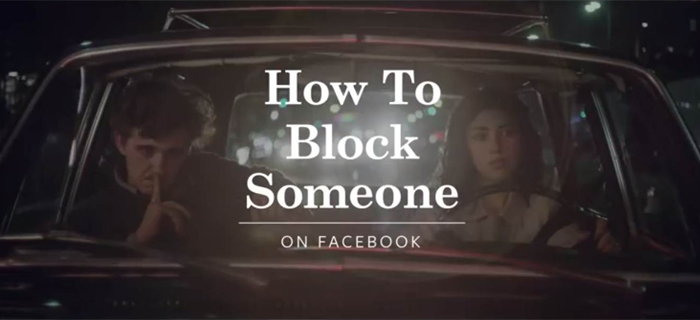Kinderen en jongeren zijn continu in het nieuws. De meest lezenswaardige/opvallende berichten uit andere bronnen verzamel ik wekelijks in een post met ‘kortjes’ – oneliners met een linkje naar het oorspronkelijke artikel. KLIK & LEES:
Toys are more divided by gender now than they were 50 years ago; even at times when discrimination was much more common, catalogs contained more neutral appeals than advertisements today (The Atlantic)
Disney will launch its digital learning initiative Imagicademy on December 11; it’s a suite of mobile learning apps for kids, along with an app where parents can follow along, give their kids a virtual high five, and see recommended physical activities (TechCrunch)
The TOADY (Toys Oppressive and Destructive to Young children) Award goes to the AT&T U-verse app by BabyFirst, the first two-screen experience for babies: “This is insidious, and may actually harm their development” (CCFC)
McDonald’s has given away more than 22 million books as part of its Happy Readers campaign, which launched in January 2013 in a bid to “evolve” how parents perceive the brand (Marketing Magazine)
While the young adults who grew up on a diet of Smirnoff Ice may think that they party hard, statistics increasingly suggest that their bacchanalian behaviour is being eclipsed by the revelry of their own mummies and daddies (The Telegraph)
Why should today’s teens opt for Aéropostale as opposed to one of their umpteen million fast-fashion options? Because their clothes are “safe” and you won’t get relentlessly mocked for your fashion choices — at least that’s what the CEO thinks (Jezebel)
Mayhem, a four-year-old from Ohio who started a blog featuring handmade paper reconstructions of red-carpet dresses, will develop clothing, accessories and shoes for Crewcuts, the children’s brand of J. Crew (WWD)
According to a new survey conducted by Gerber.com, close to 40% of moms aged 18 to 34 created social media accounts for their baby before the child’s first birthday: ““I think everything my son does is cute… but, I didn’t want him to hijack my page” (Today)
If they weren’t already called Generation-Y, they’d be called Generation Notification; it’s all about the dopamine, that emerges when we receive a Facebook notification — we can’t help but to feed into this compulsion (Elite Daily)
Facebook finally seems to be getting the hang of the whole advertising thing; the social network has been working on a cute series of tutorials called Just In Case Studies — which use quirky storytelling to explain how to accomplish various technical steps on the Facebook app (Adfreak)
[youtube http://www.youtube.com/watch?v=r1TXMu6fmjw]Photo-sharing app Instagram has hit a record 300 million global users; the service, which sees 70 million photos and videos uploaded every day, has become a major social network player, surpassing Twitter’s 271m users (The Drum)
A study published in the Australian Journal of Education explored whether access to tablets in the home environment relate to young children’s literacy skills; results indeed show that 3- to 5-year-olds who have access to a tablet at home have greater literacy skills (Bitescience)
A new iOS app called Outpour lets you post anonymous messages of gratitude to your friends and acquaintances; the idea is to embolden people to share good thoughts they might otherwise keep to themselves (Wired)
In a new paper in Science, University of Pennsylvania criminologist Sara Heller offers evidence that when it comes to reducing violent crime, summer jobs programs — even relatively cheap ones — can help significantly (NYMag.com)
Kids who hate spinach or kale are proven to eat more of it after they’ve used it in a cooking class, and hands-on classes can also help fight childhood obesity and diabetes (Fasts Company)
Culinaire televisieprogramma’s hebben geen significante invloed op de attitude van kinderen tegenover gezonde voeding; ze hebben wel een significante invloed op het eetgedrag, schrijft Maaike Dijkhof (Universiteit Antwerpen) in haar thesis (Knack)
Reclamebureau Etcetera heeft in opdracht van Bolletje de langste Nederlandse tv-commercial ooit gemaakt; regionale omroep 1Twente zond de twee uur durende reclamefilm integraal uit (MarketingTribune)
Niks aanbiedingen, recepten of glanzende producten, de kerstcommercial van 2014 vertelt een verhaal — na de Jumbo-actie met BN’ers voor de armen volgt Albert Heijn met een minutenlang emotioneel sprookje: “Zoetsappig gedoe, AH moet ‘king of food’ worden” (AD)
Topdrukte op Marktplaats en Ruilen.nl door Sinterklaas: op de zondag na pakjesavond bieden mensen dubbel gekregen cadeaus aan of spullen die ze niet mooi vinden (NRC)
De VPRO komt met Suspicious Minds, een mozaïekdramaserie waarbij je als toeschouwer meegesleurd wordt in het dronkenschap van onzekere hipster-jongeren op een huisfeestje (YoungWorks)
Laat jouw beeldscherm sporen na? is een nieuwe campagne over gezond beeldschermgebruik op school en thuis; de campagne richt zich tot jongeren om bij het gebruik van beeldschermen automatisch ‘Play Pauze Stop’ in hun hoofd te laten klinken (Provincie Antwerpen)
Maker Kristian Foldager hoopt dat zijn kortfilm Snap een discussie op gang brengt over de gevaren van het internet: het mag dan wel lijken alsof alles wat u uitspookt een privé-aangelegenheid is, maar soms kan het, zonder uw medeweten, grote gevolgen hebben (Humo)
[vimeo 113003450 w=570 h=321]Het briefje op de schuifdeuren van de supermarkt laat aan duidelijkheid niets te wensen over: verboden toegang voor scholieren tussen acht uur ’s ochtends en vier uur ’s middags — geen discriminatie, oordeelt de Tilburgse hoogleraar internationale mensenrechten Nicola Jägers (Trouw)
Kinderen vonden MH17, de opkomst van IS en het WK voetbal het nieuws van het jaar, blijkt uit een onderzoek dat het Jeugdjournaal heeft gedaan voor het jaaroverzicht (NU.nl)
Over een week gaan drie dj’s van 3FM weer het Glazen Huis in; al tien jaar halen ze met de actie Serious Request geld op voor een goed doel — kinderen op 1.500 scholen krijgen gastlessen over de actie (Jeugdjournaal)
Britse kinderen lijken niet erg op de hoogte te zijn van de oude bijbelverhalen; uit een enquête blijkt dat 20% van de kinderen denkt dat Jezus Christus een voetballer bij Chelsea is (De Telegraaf)
In 1994 liet de Canadese docent Bruce Farrer zijn leerlingen brieven aan hun toekomstige zelf schrijven; nu, twintig jaar later, stuurde hij zijn leerlingen die brieven op (LINDA. Nieuws)
Aantrekkelijke mensen maken eerder kans op een baan of een vriendschap dan lelijke mensen — dat is een open deur, maar het Sociaal en Cultureel Planbureau heeft het nu ook onomstotelijk bewezen (NOS)
En tot slot, klik hier voor 30 wijsheden uit tienerfilms (Shortlist) of hier voor briefjes van kinderen die afgelopen jaar een lach op het gezicht toverden (De Morgen)

